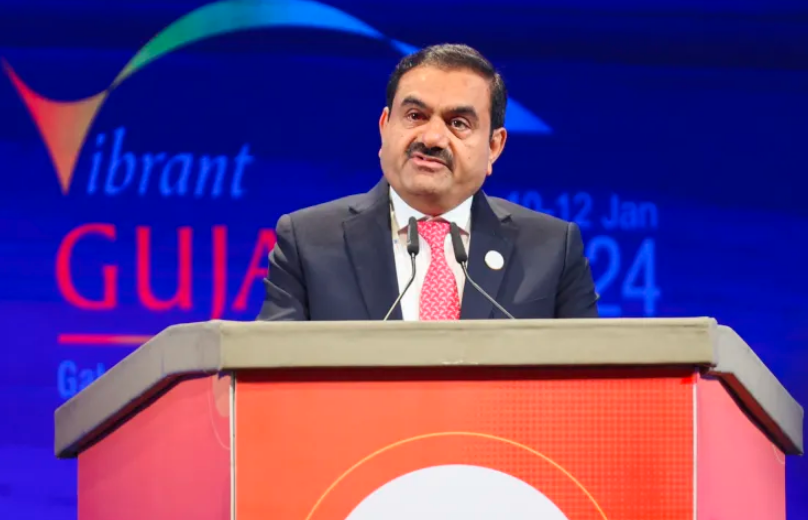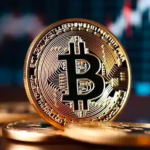Indian billionaire Gautam Adani and his Adani Group face many allegations. A big question is: Can he be tried in the US for crimes in India? This question looks at how international law and cross-border jurisdiction work. It also explores the hurdles in holding big corporate leaders accountable worldwide.
The case of Gautam Adani and the Adani Group’s alleged wrongdoings has grabbed worldwide attention. It raises questions about legal systems dealing with complex global issues. As the probe into the group’s actions goes on, the chance of US action against Adani and his company is being closely watched.

This article will dive into the legal details and jurisdictional limits. It will see if Gautam Adani can face US charges for alleged crimes in India. We’ll look at international financial crimes, corporate responsibility, and extradition treaties. Our goal is to understand the challenges and possible ways to prosecute big figures who work across countries.
Keep Reading:
South Korean ruling party Leader Calls for Yoon’s Power Suspension
Understanding the Scope of US Jurisdiction Over International Financial Crimes
The United States has strong legal power to tackle international financial crimes. This is thanks to laws like the Foreign Corrupt Practices Act (FCPA). The FCPA lets US courts go after foreign nationals and companies linked to the US market.
Under the FCPA, the US can punish foreign individuals and groups for bribery, embezzlement, and more. This is true if there’s a connection to the United States. This could be through a US subsidiary, American bank transactions, or using the US financial system.

The US Department of Justice and Securities and Exchange Commission have wide-ranging powers. They can collect evidence and testimony from abroad. This is made easier by international treaties and agreements, like extradition laws and mutual legal assistance treaties.
But, the US’s reach isn’t endless. Problems can come up with foreign laws, lack of evidence, or getting help from overseas. This makes it hard to prosecute foreign business leaders for crimes in their own countries.
The Adani Group’s Business Connections with US Markets
The Adani Group, a leading Indian conglomerate, has made big strides in the US markets. It has connections in energy, logistics, and infrastructure. This shows the group’s aim to grow globally and diversify.
The group has invested in renewable energy projects with American companies. This move is in line with the US’s clean energy goals. It also boosts the Adani Group’s presence in the US.
Adani Group also works with US banks and investment firms. These deals could lead to legal checks in the US. This is especially true if there are claims of financial wrongdoings or breaking rules.
As the Adani Group grows, its ties with the US will likely get stronger. This could mean more legal scrutiny in the US. If there are claims of wrongdoing, the group’s activities in India might also face checks.
Cross-Border Investigation Powers and International Cooperation
US authorities have many tools to fight international financial crimes. They use mutual legal assistance treaties (MLATs) to share information and gather evidence across borders.
With MLATs, US investigators can ask other countries for help. They can get important documents, interview witnesses, and collect evidence. This teamwork is key because financial crimes often span many countries.
US agencies like the Department of Justice and the Securities and Exchange Commission also have strong powers. They can force foreign entities to share information linked to US markets. This helps them investigate thoroughly, even if the crime happened abroad.
These cross-border tools have worked well in big cases. US authorities have caught and punished financial crimes worldwide. As the world gets more connected, this teamwork will keep being crucial. It helps make sure corporate leaders are held accountable, no matter where they are.
Can Indian billionaire Gautam Adani be tried in the US for India ‘crimes’?
Trying someone for financial crimes in another country is tricky. This is especially true for Indian billionaire Gautam Adani. He might face trial in the US for actions in India, raising many legal questions.
The US can try people for financial crimes that affect American markets or institutions. But how far this power goes is still debated.
The US has shown it’s ready to charge foreign nationals for crimes that harm American interests. But proving a case in US courts can be hard. It’s also important to work with other countries on these cases.
Whether Adani can be tried in the US depends on several things. These include the laws of both countries, the evidence, and how they overlap. The outcome could change how companies are held accountable and affect US financial rules.
Legal Challenges in Prosecuting Foreign Business Leaders
Going after foreign business leaders in court is tough for prosecutors. One big problem is the complex diplomatic issues. Governments might not want to help or share evidence, fearing it could harm their relations with the US.
This makes it hard to gather evidence for US courts. Foreign defendants also have strong legal defenses. They might say US courts can’t handle their case because it happened abroad.
Showing a clear link to harm in the US is another challenge. Plus, these leaders often have a lot of money to spend on their defense. This can slow down the case and make it harder for prosecutors.
These challenges show how crucial it is to do thorough investigations. It’s also key to work well with other countries and understand international laws. To overcome these obstacles, prosecutors need a plan that tackles both diplomatic and legal issues.
The Impact of Hindenburg Research’s Allegations on US Legal Proceedings
Hindenburg Research’s claims against the Adani Group have shaken the global markets. They accuse the group of market manipulation and securities fraud. This could greatly affect any US legal actions against the Indian company.
Hindenburg Research, a US short-seller, says the Adani Group has committed “brazen stock manipulation and accounting fraud.” If these claims are true, US regulators and law enforcement might pay closer attention. The SEC might start a deep investigation into the Adani Group’s practices and financial reports.
Such an investigation could give US prosecutors strong evidence for legal cases against the Adani Group or its leaders. Hindenburg’s detailed report could be key in building a strong case against the company.
But, the Adani Group strongly denies these allegations, calling them “baseless” and “malicious.” They’ve threatened to sue Hindenburg Research. This could make US legal actions more complicated. The outcome will affect the Adani Group and the Indian business world a lot.
Evidence Requirements and Documentation Standards in US Courts
International financial crimes pose big challenges in US courts. Prosecutors face tough tasks in getting and using evidence from abroad. They must make sure this evidence is good and can be used in court.
Getting evidence from other countries is hard. It needs careful work and help from law enforcement in different places. The rules for using this evidence in US courts are strict.
US courts have high standards for documents. Prosecutors must make sure all evidence, from anywhere, is good enough for court. This means checking documents, keeping track of who had them, and making sure the info is reliable.
Dealing with these rules can be very tough, especially for complex cases. It’s important for prosecutors to make sure they have all the right evidence. This helps build a strong case against those accused of financial crimes.
International Extradition Treaties and Their Limitations
Extradition between countries is based on bilateral agreements, or extradition treaties. These treaties set the rules for sending individuals accused or convicted of crimes from one country to another. But, these treaties have their limits, making cross-border investigations and legal actions challenging.
The US and India have an extradition treaty, but using it can be tricky. Extradition requests might be turned down for reasons like human rights concerns or political motives. Also, the legal rights of individuals facing extradition can differ based on the case and the laws of both countries.
With the Adani Group facing financial fraud allegations, extradition’s limits might be a big issue. If the US wants to charge Gautam Adani or other Adani Group leaders, extraditing them from India will depend on strong evidence and cooperation between the two countries.
Understanding the complexities of extradition treaties and their limits is key as the Adani Group’s legal issues grow. Knowing the details of these agreements and the legal rights of those facing extradition is vital. It will help figure out if cross-border investigations or prosecutions are possible.
Financial Market Regulations and Corporate Accountability Measures
The Adani Group’s financial issues have raised big questions about global markets and corporate rules. Investigations and possible legal actions could change how markets work and how companies are watched. This could affect how fair and safe markets are, and how companies act responsibly.
Experts think these big cases might lead to tighter rules. This could happen in India and around the world. Governments might watch financial deals more closely, ask for more openness, and check companies better. This could make markets safer and more reliable for investors.
The Adani case might also make companies focus more on good leadership and rules. People who own shares, investors, and leaders might want companies to be more open and careful. This could mean companies have to follow stricter rules to make sure they act right for everyone involved.





